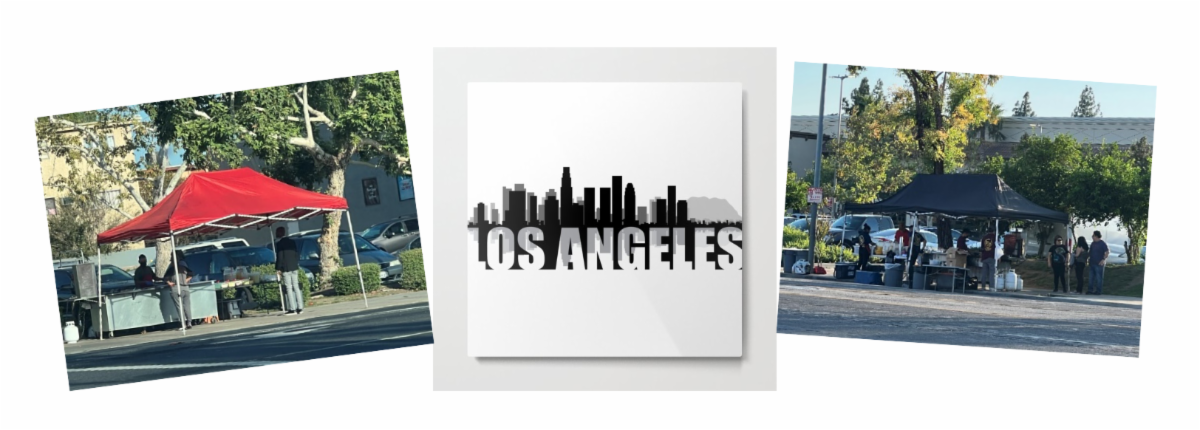For street vendors in legal limbo, there may be a little light at the end of the tunnel.
In Los Angeles, carts selling chili-topped fruits, pupusas, or tacos, can be found on many corners, often, alongside outdoor grilling stands from where the tantalizing scent of smoked and grilled chicken is wafted around, enveloping anyone who passes by. Food street vendors have populated the streets of Los Angeles and many other California cities for long time. They are a staple part of the city’s ecosystem, but at the same time, their trade has been the subject of harassment, forceful attempts at control, and above all, the continuous imposition of fines and restrictions. After a long civic battle, street food vending was strictly legalized in 2018, but for many street vendors, the situation didn’t improve greatly. The process to obtain the required permits is time-consuming, many times prohibitively expensive for the vendor and ultimately required extensive (and expensive) cart setups and outlawed essential tasks like reheating food or cutting fruit.
One of the main problems has been that the 2018 bill still uses the same legal parameters and requirements as the county public health license for street vending operations, which means street vendors must comply with the rules for “mobile food facilities”, tailored towards food trucks and catering operations. These require that vendors have at least a three-basin sink, 20 gallons of water on hand at all times, and a mechanical exhaust ventilation cover over hot cooking equipment. Such restrictions accordingly resulted in many street vendors continuing to operate outside legal oversight of the health authorities, risking fines or confiscation of their properties.
Trying to find a more adequate solution to this dilemma, State Sen. Lena Gonzalez (D-Long Beach) proposed Senate Bill 972, which aims to create more specific rules for street vendors by introducing a new “compact mobile food facility “category to the code.
“The bill, which addresses many of the concerns posed by advocates, would allow compact facilities to cut fruit, keep food warm, and reheat cooked food, among other things. Vendors would be exempt from needing certain food safety certifications and would be able to rake advantage of California’s ‘Cottage Food laws’, which allow food to be prepared in inspected home kitchens (or potentially in approved community spaces like churches).” (1) (The fight for LA’s Street Food Vendors by Zoie Matthew)
Maura Smith
Food Industry Program Coordinator


